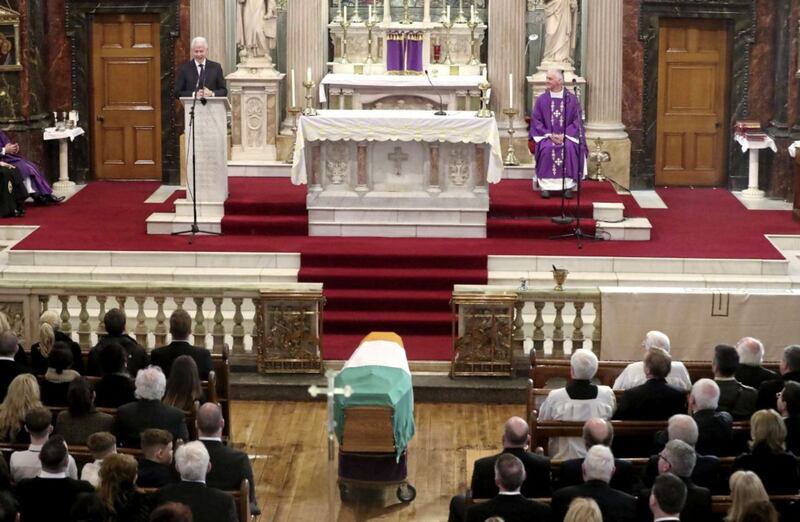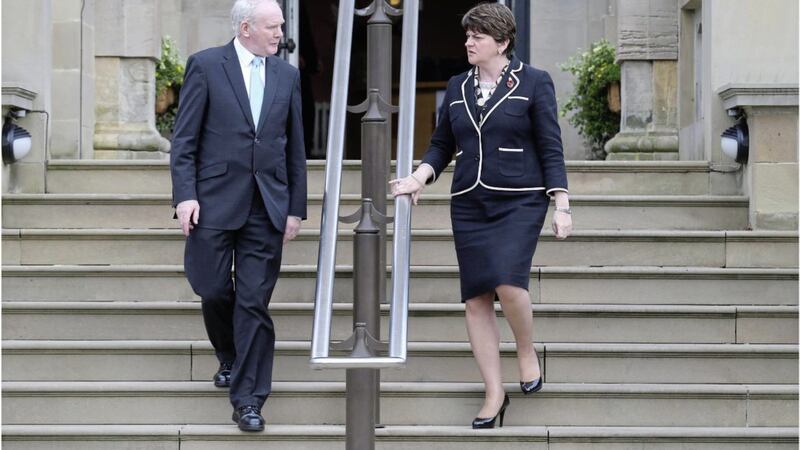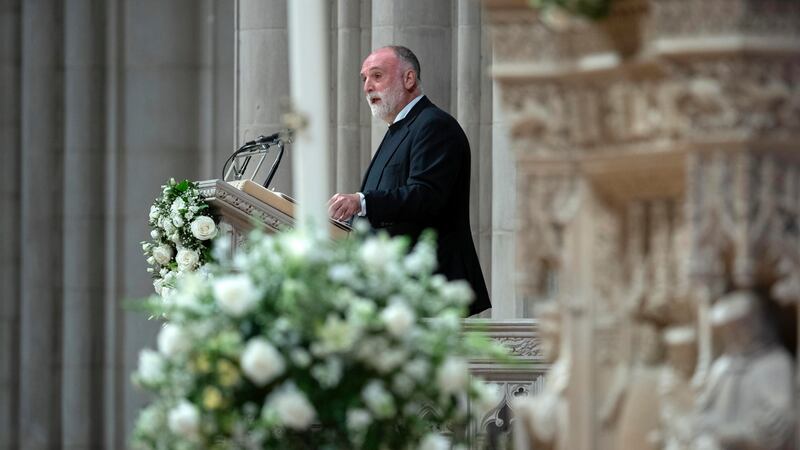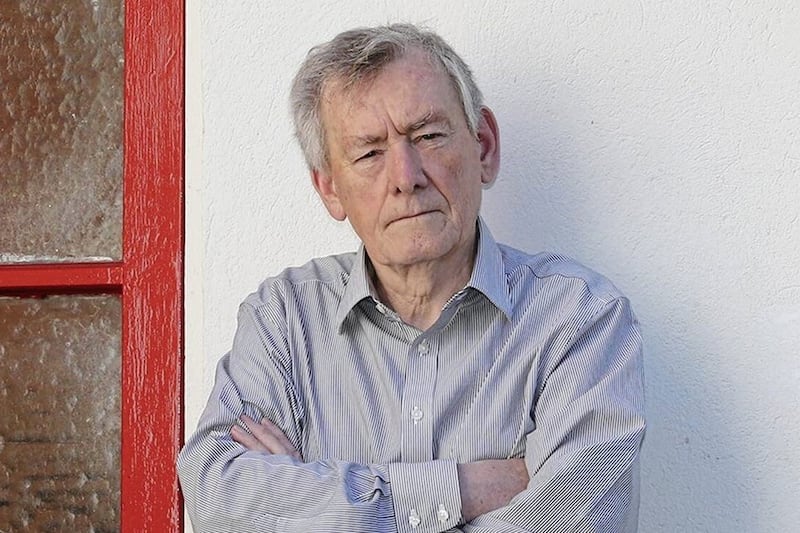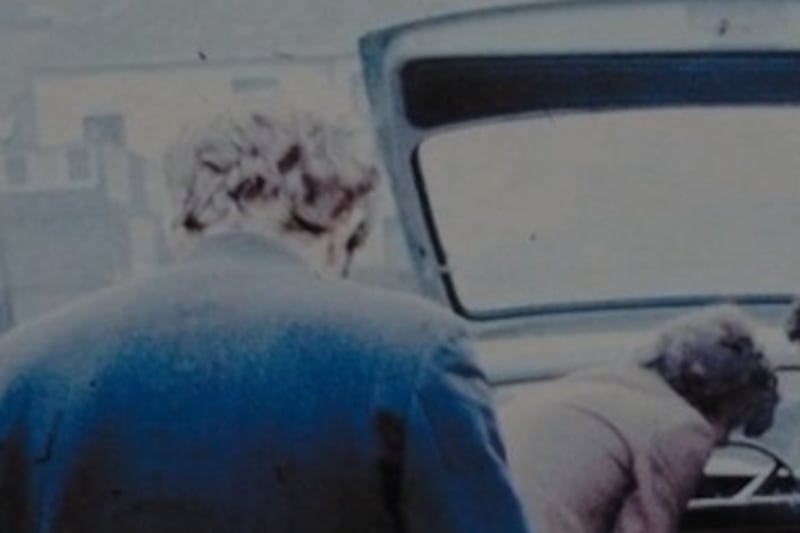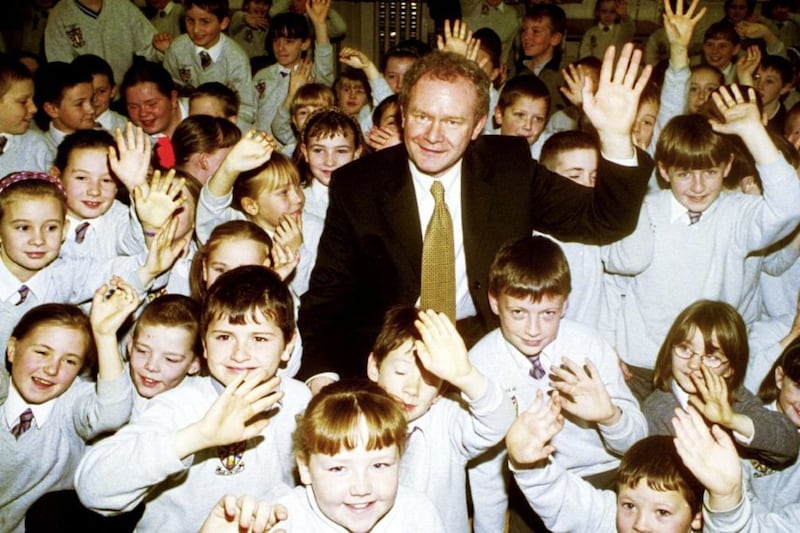IF it hadn't been for Martin McGuinness, I don't think the DUP would have cut the deal that rebooted the Assembly and Executive in May 2007.
They may never have trusted him, but they knew that he could deliver the IRA on key issues like decommissioning and `recognition' of the policing/justice system. Crucially, McGuinness knew that Paisley and the DUP could deliver unionism in a way that David Trimble had never been able to do: which is why, of course, Sinn Féin refused to cut a deal with him.
What surprised just about everybody - including themselves, I suspect - was the genuine warmth of the relationship between McGuinness and Paisley (it would never have been possible with Adams; still regarded by most unionists as cold and aloof). `Chuckle Brothers' had been intended as an insult, but they embraced it and played on it. Ironically, they were so cozy together that the DUP, fearing an internal backlash from Jim Allister's newly formed TUV, dumped Paisley in favour of Peter Robinson.
McGuinness could have caused problems for Robinson at that point: instead, they developed a relationship that was businesslike and actually fairly cordial. They knew they needed each other - albeit for competing and often contradictory purposes. And, in fairness to them, they kept the Executive going for almost a decade - albeit with serial crises, walkouts, temper tantrums and edge-of-the-cliff showdowns along the way.
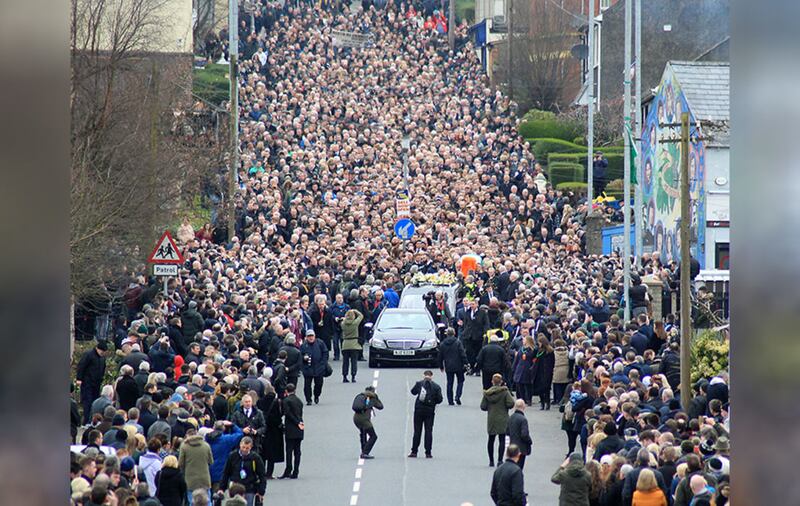
Yet it soon became apparent (key figures in both parties acknowledge the fact) that the relationship with Arlene Foster was entirely different. She hadn't come by the same route as Paisley and Robinson to the First Minister's office and maybe didn't appreciate just how difficult it had been for McGuinness to cut the deal in 2007 and keep the show on the road for so long. She should have: she had been in the Executive with him since 2007.
Anyway, they tried to smooth over their differences with a joint article in November 2016; but it didn't withstand contact with their first major joint problem - RHI - just two weeks later. And she, very stupidly, allowed it to escalate in a way Robinson wouldn't have.
At that stage a number of other factors were in play. McGuinness was now dealing with his third DUP leader. The 2016 Assembly election (which he had acknowledged at the time was probably his last) hadn't been a good one for either nationalism or Sinn Féin. He was aware of just how serious his illness was. Gerry Adams had stepped in and taken control of the Assembly party. We will probably never know the exact reasons behind the decision, yet on January 9, 2017, Martin McGuinness made the final political decision of his life.
He crashed the Assembly and Executive. More important, he crashed them knowing that they were unlikely to be restored in his lifetime. He crashed them on the back of a resignation admission that the DUP, successive British governments and unionism generally had failed to stretch themselves in the same way that he had `stretched' republicanism.
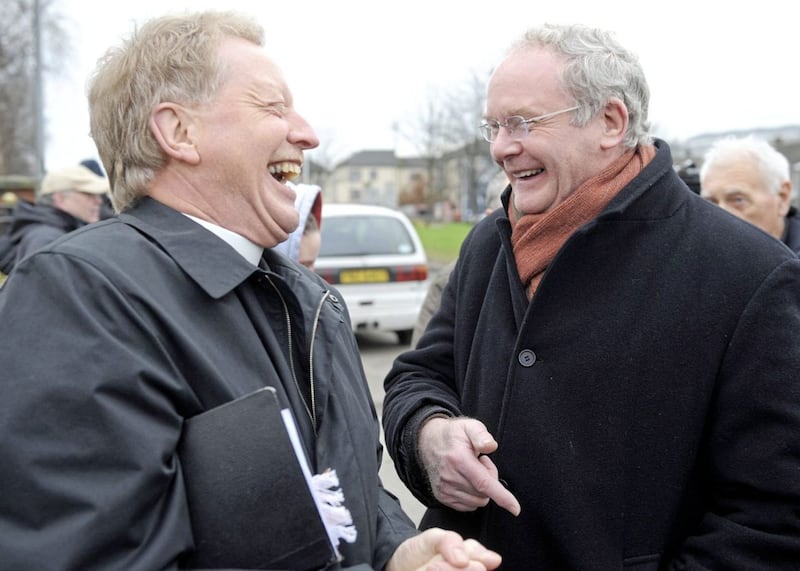
It seemed to me, from his resignation letter, that McGuinness had, to all intents and purposes, come to the end of his tether in terms of the DUP/SF relationship at Executive level. Some people say that had he not been ill and had not control already been passing to Adams, McGuinness would have stopped short of crashing the institutions. I don't believe that.
Political careers are judged by first and last acts and I think that Martin knew exactly what he was doing when he signed that letter. He knew that both the contents and consequences would steer the direction of those assessing his legacy.
His influence and input changed politics here. He changed Northern Ireland. He was able to begin a post-1997 ceasefire journey with unionism that Adams could never have done. Yet it's hard to avoid the conclusion that the journey - from his perspective - was heading towards personal failure. Whatever unionists may have thought of Martin McGuinness - and their differing opinions of him were of Grand Canyon dimensions - they may find his successor (and I don't just mean Gerry Adams) much more difficult to deal with.
